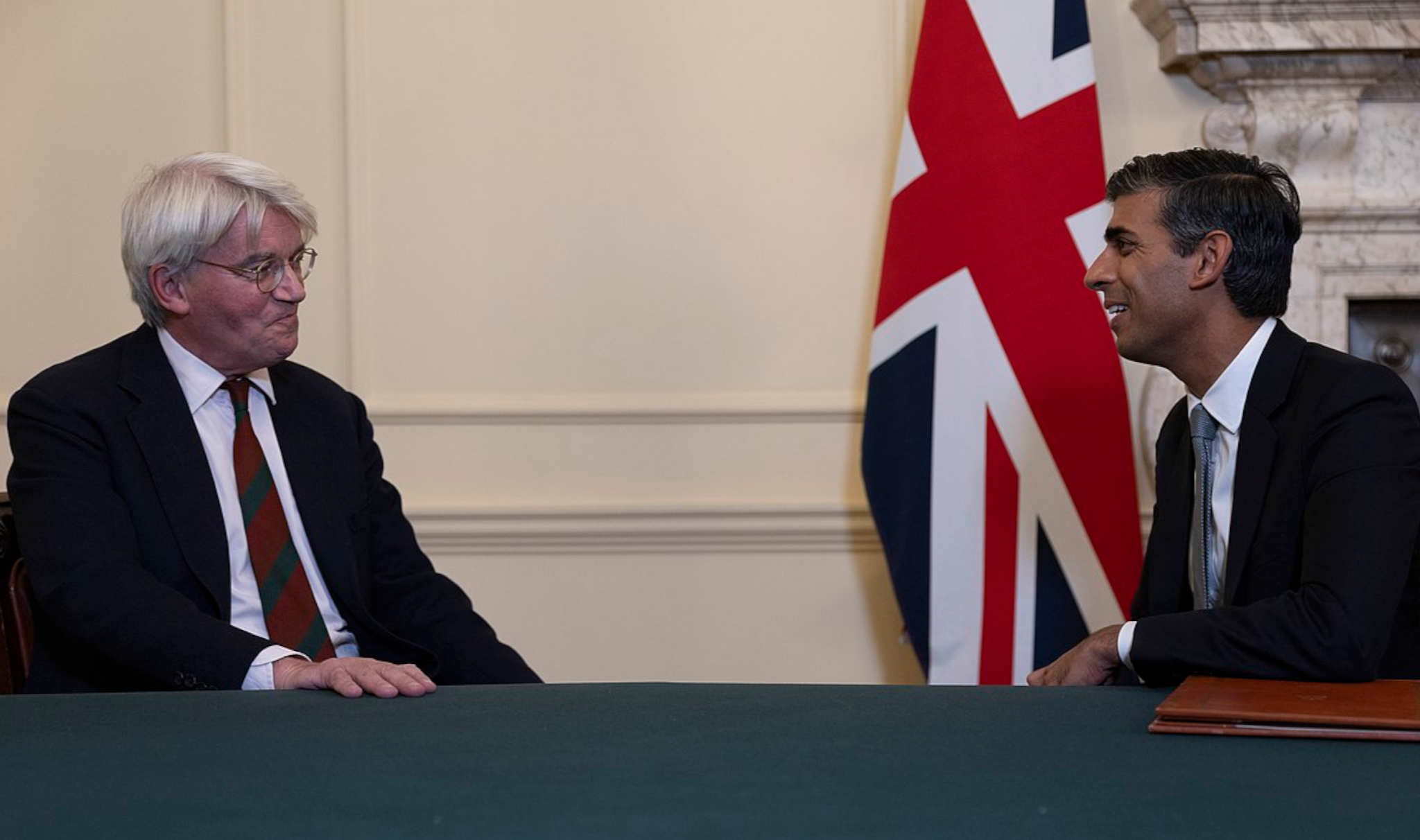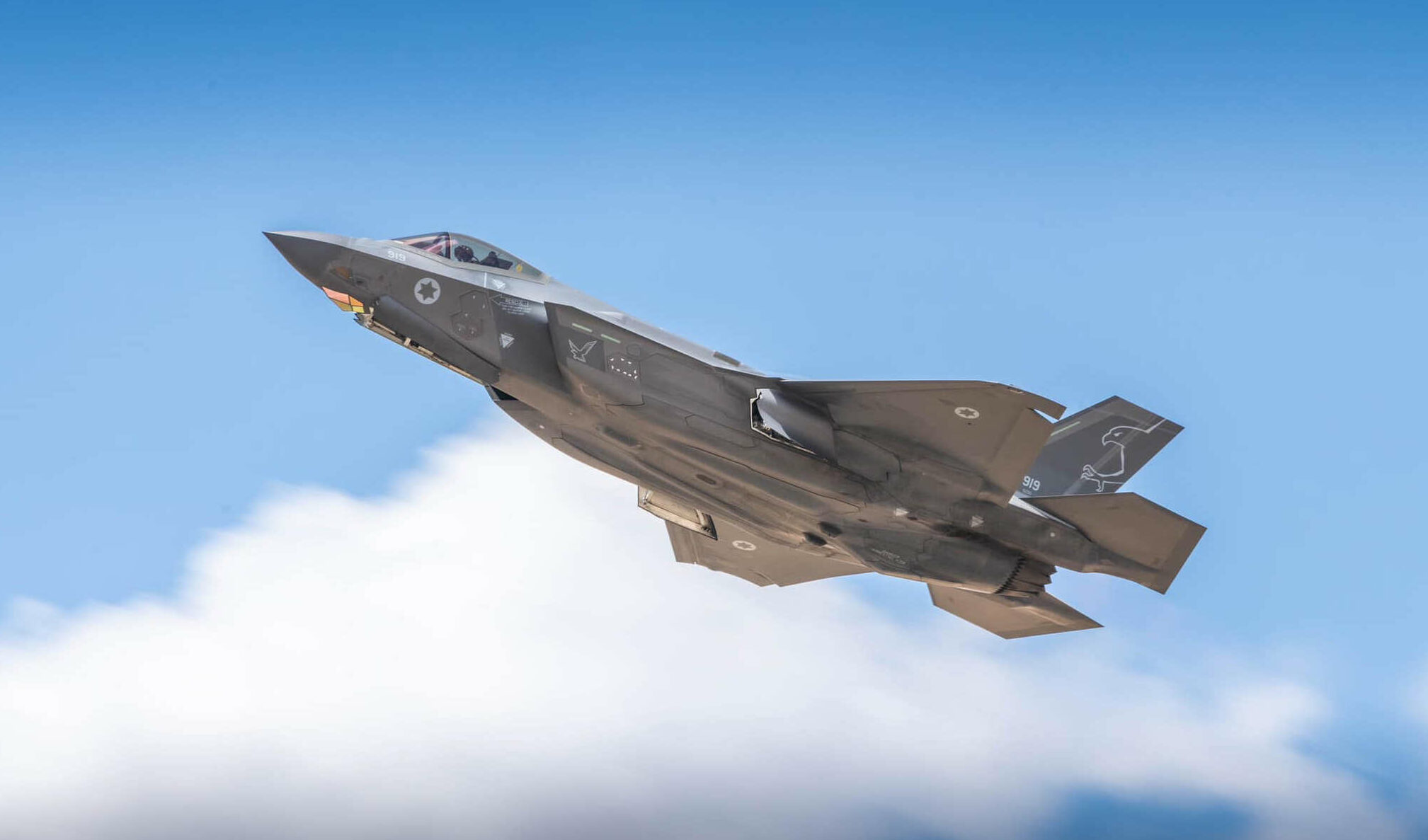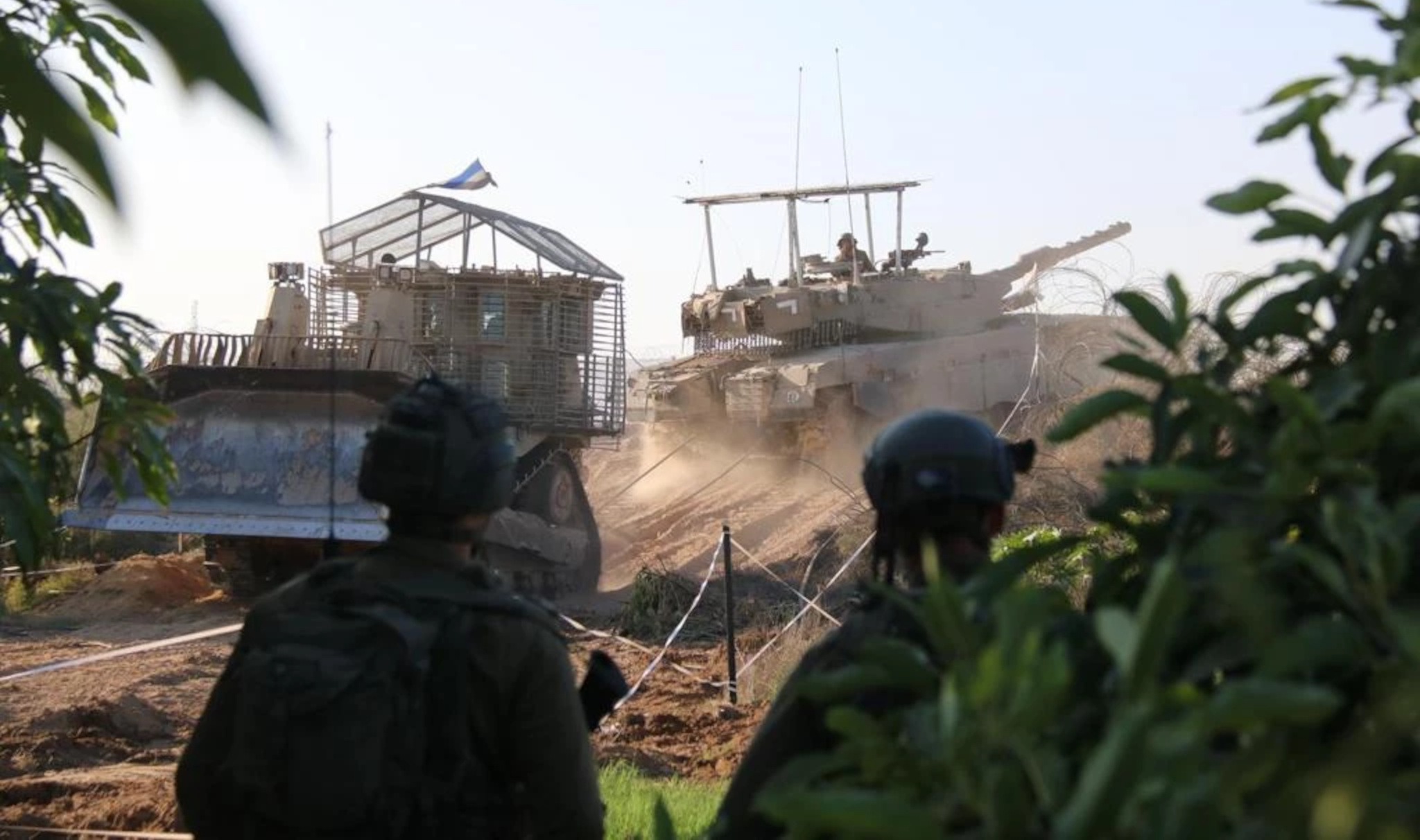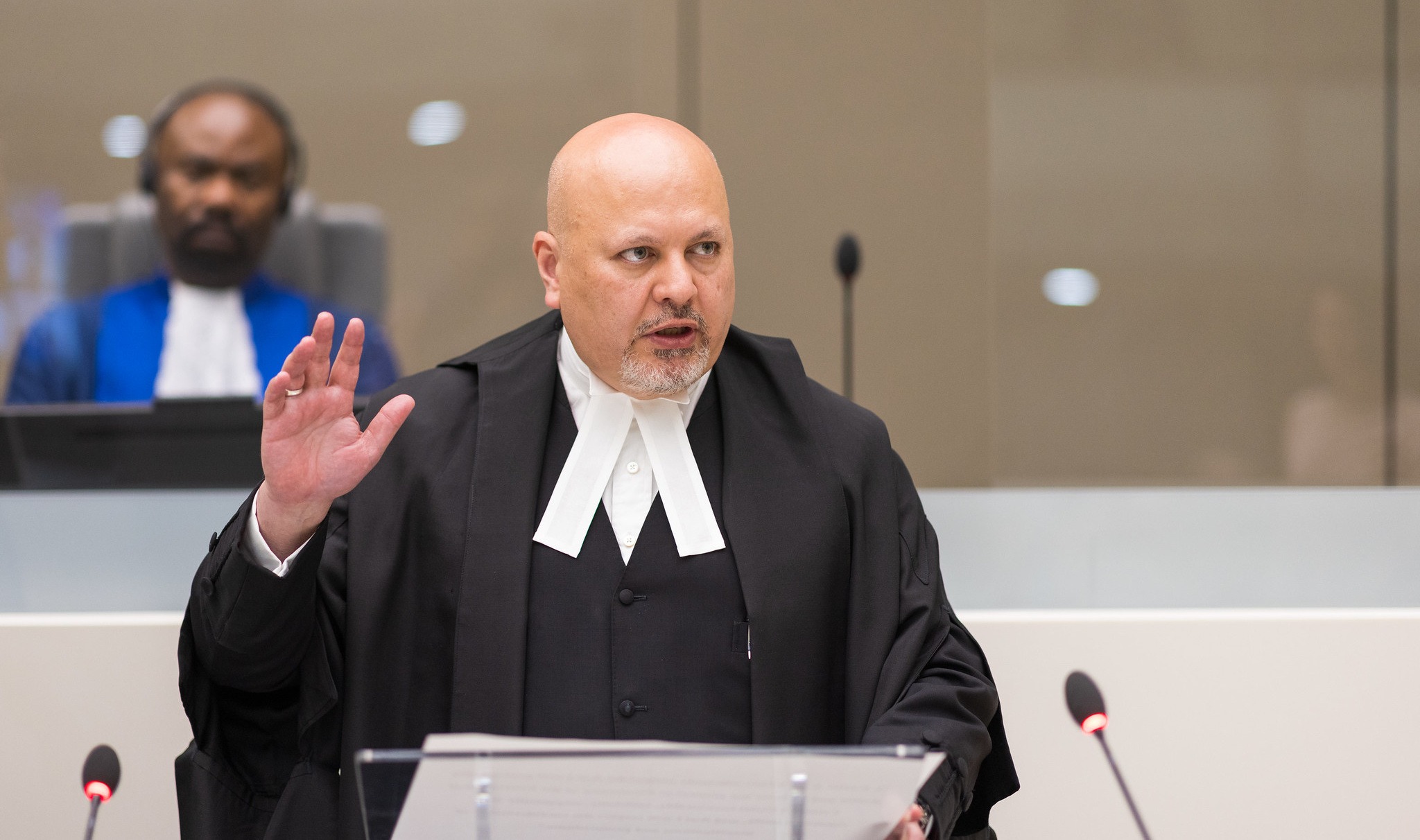Andrew Mitchell has consistently defended and apologised for Israel’s war on Gaza since it launched its brutal campaign following the Hamas attacks of 7 October last year.
His support, delivered in numerous parliamentary debates and questioning, is part of the UK government’s extraordinary backing of Israel.
This includes substantial military activities not reported by Britain’s mainstream media, defence of Israel at the United Nations and ongoing negotiations to increase trade between the two countries – all taking place as Israel has killed over 30,000 Palestinians.
Mitchell’s tireless assistance to Israel while it accused by the International Court of Justice (ICJ) of “plausibly” conducting a genocide, has covered numerous aspects of Israel’s war.
‘Wrong and provocative’
In particular, the foreign minister has led the vociferous UK government rejection of South Africa’s genocide case against Israel at the ICJ.
Mitchell has said that “South Africa’s decision to bring the case was wrong and provocative”. Indeed, he has dismissed the charge of genocide against Israel as “hideous”.
In parliament, Mitchell has repeatedly said the case is “unhelpful and we do not support it”. He has added: “We do not believe that calling this genocide is the right approach. It is wrong to say that Israeli leadership, and Israel as a country, have the intention to commit genocide”.
Last month Mitchell told parliament: “It is hard to overestimate the offence caused by the extraordinary rhetoric of accusing Israel of being guilty of genocide, given the antecedents and events that took place in the holocaust during the war and the fact that more Jewish people were murdered on that one day of 7 October than at any time since the end of the second world war.”
Breaching international law
Indeed, Mitchell – speaking for the UK government – has refused to explicitly accept that Israel has committed any breaches of international law.
Earlier this year, as Israel’s slaughter of thousands of Palestinians and the razing of whole neighbourhoods in Gaza was plain to see, Mitchell told parliament: “Israel plans to act in accordance with international humanitarian law and has the ability to do so.”
Last December he said: “The Government have heard the words of President Herzog that Israel will respect international humanitarian law, and the Government expect Israel to abide by the words of the President.”
A month before, Mitchell similarly said: “The President of Israel, President Herzog, has made it clear that his country will abide by international humanitarian law.”
These apologias have come as Herzog was personally named in South Africa’s genocide case against Israel. Herzog said in October 2023 that the “entire nation” of Gaza was responsible for Hamas’ attack on Israel, a statement cited by the ICJ as plausible evidence of incitement to genocide.
Last month, Mitchell was asked in parliament whether the Foreign Office has logged violations of international humanitarian law by Israel in Gaza.
He again simply replied: “Israel has the capability and commitment to act within IHL [international humanitarian law]. We continue to call for IHL to be respected and civilians to be protected”.
Defending the IDF
Mitchell has strongly taken to defending the Israeli military directly.
Last November, five weeks into Israel’s campaign in Gaza, he paid homage to “the work of the Israel Defence Forces, and indeed the training they undergo, which respects international humanitarian law and understands the obligations a military force owes to civilians”.
Two weeks later he claimed in parliament: “The people who serve in the Israel Defence Forces are taught, as part of their basic training, the importance of abiding by international humanitarian law. I would contrast the Israel Defence Forces, who seek to defend Israeli citizens, with Hamas, who seek to use their citizens to defend Hamas”.
“Mitchell has strongly taken to defending the Israeli military directly”
Questioned by Labour MP Sarah Champion about Israel using drones against civilians in Gaza, Mitchell observed: “Just as in the UK military, targeting in Israel is subject to lawyers being present in the room and legal advice. That should give her some comfort on her specific point about drone targeting.”
The furthest Mitchell has gone in challenging Israel is in the statement now being repeated by UK ministers that “too many civilians have been killed” in Gaza and that “there must be a reduction in civilian casualties”.
He adds that “we want Israel to take greater care to limit its operations to military targets and avoid harming civilians and destroying homes”.
This is an implicit recognition that Israel has been conducting operations against civilians – but British ministers refuse to say this explicitly or change policy as a result.
Investigating yourself
If not the ICJ, who does Mitchell think might hold the Israeli military to account for crimes being committed against Palestinians? Israel itself.
Asked in parliament what steps the UK was taking to hold people to account for human rights violations in Gaza, Mitchell said that “the UK Government would expect the Israeli domestic legal system to investigate and, where appropriate, take action against those accused of human rights violations and abuses”.
Rejecting the ICJ case against Israel, Mitchell has similarly said: “Israel is a state party to the Geneva convention of 1949, so it is obliged to take action against those accused of grave breaches of international humanitarian law. Because of the nature of Israeli society, that is something that we would expect it to do, were those circumstances to arise”.
Yet every Israeli minister has vociferously defended the actions of its armed forces in Gaza; it is surely known to the Foreign Office that Israel’s “domestic legal system” will continue to protect them.
More war
Mitchell has of course rejected for over five months calls in Britain and around the world for a full ceasefire in Gaza, consistent with the UK’s ongoing support for Israel’s war.
The UK has sent 48 military aircraft to Israel since 7 October and flown 65 spy missions over Gaza. At least nine Israeli military jets have landed in Britain during this time, with the UK government refusing to say what their purpose has been.
The government’s public position is for “a humanitarian pause in the fighting” which would “lead to a sustainable ceasefire without a return to further fighting”.
“Mitchell’s view that Israel should ‘remain’ within international law is telling enough”
Mitchell’s support for the war has come in the form of repeatedly defending Israel’s “right to self defence”. His standard formulation has been that “Israel has the absolute right of self-defence but must remain within international humanitarian law.”
His view that Israel should “remain” within international law is telling enough. But it is also the case that Israel’s right to self-defence extends only to protecting its own civilians, not to undertaking a catastrophic military onslaught in a territory that it occupies.
Mitchell surely knows this as the UK Foreign Office formally recognises Gaza as an occupied territory.
Yet despite the attacks across all Gaza, hitting numerous civilian sites including hospitals and refugee camps, the foreign minister has played along with Israel’s contention that its actions are simply about fighting Hamas.
He said in parliament in January: “Given the horrendous events of 7 October, Israel has a right to self-defence. That is what Israel is seeking to exercise in tracking down Hamas and stopping their ability to repeat what they did on 7 October, as Hamas’s leaders have made clear they wish to do”.
Destroying Gaza
Mitchell’s support of Israel’s right to “self-defence” has led him to back some of its most egregious policies.
When Israeli defence minister Yoav Gallant announced a “complete siege” on Gaza on 9 October last year, Mitchell was asked in parliament what implications this illegal strategy might have on UK policies.
He simply responded by saying: “We support Israel’s right to defend itself against Hamas, but it must comply with International Humanitarian Law and there must be a reduction in civilian casualties”.
Following Israel’s numerous attacks on hospitals in Gaza, Mitchell said last November: “I have to say that it would be helpful if all those calling for Israel to protect hospitals would also call on Hamas to vacate the hospitals and stop using civilians as human shields”.
The extent of the wholesale destruction of Gaza has been defended by the UK’s foreign minister.
Towards the end of December last year, Mitchell reassured parliament: “I do not believe it is Israel’s intention to raze Gaza to the ground. Israel’s intention is to ensure that Hamas terrorists can never inflict on the state of Israel the appalling events that took place on 7 October”.
A week after Mitchell made that statement, a Wall Street Journal report estimated that 70% of homes in Gaza had been destroyed.
Neither is Mitchell keen to publicise such statistics, of which the Foreign Office is surely aware. Last month he was asked by Labour MP Dan Carden if he would assess “the proportion of civilian infrastructure that has been destroyed in Gaza since 7 October 2023”.
Mitchell didn’t answer the question, replying: “We are deeply concerned about the impact of Israeli Defence Force (IDF) operations on the civilian population in Gaza”.
Arming Israel
As foreign minister, Mitchell has played a key role in ensuring the UK continues to arm Israel throughout its Gaza campaign and has refused to suspend such exports.
He has fended off numerous questions by MPs to halt arms exports, consistently responding by claiming the UK operates “robust” arms export guidelines. He incessantly adds that the UK “will not grant an export licence if … there is a clear risk that the items might be used to commit or facilitate a serious violation of International Humanitarian Law”.
Declassified has shown that the UK’s arms export guidelines are certainly not robust – they are intended to enable the government to arm many of the world’s worst human rights offenders, and countries at war.
Mitchell has refused to directly answer several MPs’ questions about UK arms sales to Israel, including those concerning how many export licences have been assessed since 7 October 2023 and how many have been reviewed since the ICJ’s genocide ruling.
‘Closest friends’
Rather than sanctioning Israel in any way, Mitchell has been keen to stress its deep relations with the UK.
Five weeks after Israel began its mass attacks on Gaza, Mitchell declared: “We have always made it clear to Israel that we are its closest possible friend”. The UK government has, he added, an “extremely close alliance and friendship with them”.
This has certainly been extended to Israel throughout the Gaza war by Mitchell himself.
The former International Development Secretary surprised many in 2017 when, as a backbench MP, he accused the UK government of being complicit in the starvation of Yemenis through Britain’s war on the country.
But the Rugby school-educated and former army officer has apparently reverted to type in defending the indefensible since being back in high office.





